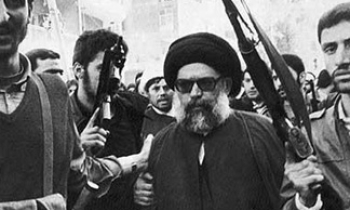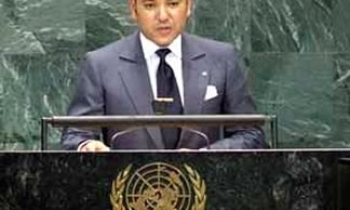A few days ago, the Uganda government "revised" the accreditation for Will Ross, the BBC’s correspondent in Kampala, from 12 months down to four.
Freelance journalist Blake Lambert, who has reported from Uganda for the Canadian Broadcasting Corporation, the Economist, and other news outlets, has been checking the mailbox for his accreditation, but the authorities have not posted it.
Information Minister James Buturo said the step was taken because foreign journalists had become a "security threat". For good measure, no foreign journalists can now travel more than 100 kilometres outside the capital without some kind of special permission.
This genre of rules, which in some places requires that foreigners cannot travel anywhere without an escort or "translator", was once fashionable in the Soviet-bloc and Third World countries like Saddam Hussein’s Iraq. But it is unusual in Uganda, which used to be a paradise for foreign journalists. It wasn't unusual for a rookie reporter from a small-town paper to arrive in Kampala and get an interview with the president the same day.
Favoured Ugandan journalists, on the other hand, would get the interview with the president after a year’s wait. And troublesome independent hacks had to wait for five years, or forever.
Foreign journalists were treated like princes and princesses. They would be flown to unhappy places like northern Uganda by helicopter to see the evil that the Lord’s Resistance Army was wreaking and the brave, though only modestly successful effort, the army was making to quell the insurgency.
At the time, for a foreign journalist, the problem was how to tell the government you didn’t want to be flown hundreds of kilometres for a story your editor wasn’t interested in. Today, it’s how to get 100km outside the capital for a story your editor wants.
The past six months have witnessed a troubled transition. While 19 years of one-party rule came to a end, the constitution was amended to scrap term limits, thus allowing President Museveni, who marked his fourth five-year term in power last Thursday, to run again in next month’s elections.
There was also the arrest of opposition leader Dr Kizza Besigye, Museveni’s presumed main challenger, which sparked the first riots in Kampala for decades. It’s the coverage of these events that has infuriated the regime.
If this is the treatment being dished out to the princes and princesses, imagine what is in store for the commoners the local journalists.
But why do African governments, however enlightened they might have been at one point, always resort to this largely ineffective way of controlling news coverage when the dark clouds begin to gather? Robert Mugabe in Zimbabwe doesn’t allow foreign journalists in his country, even when they are coming to cover cricket.
For his efforts, he has got far worse press than when he still tolerated a few of them. One reason is that when a journalist is on the ground, at least you get to tell your side of the story.
With the Internet in place, it’s even more important to have journalists working freely. As the campaigns hot up, a propaganda war is being fought out between the Museveni and Besigye camps on the web.
If you have an average knowledge of the goings-on in the corridors of power, most of the web reports on the government and president, ranging from intimate domestic details to allegations of grand conspiracy to steal the elections, are plain wrong. The millions of readers outside Uganda need to read less salacious news in the mainstream international media, if they are to get a different story.
So, by cracking down on foreign journalists, the government only creates a new market for the Internet rumour mill. A strange way to help its case.









